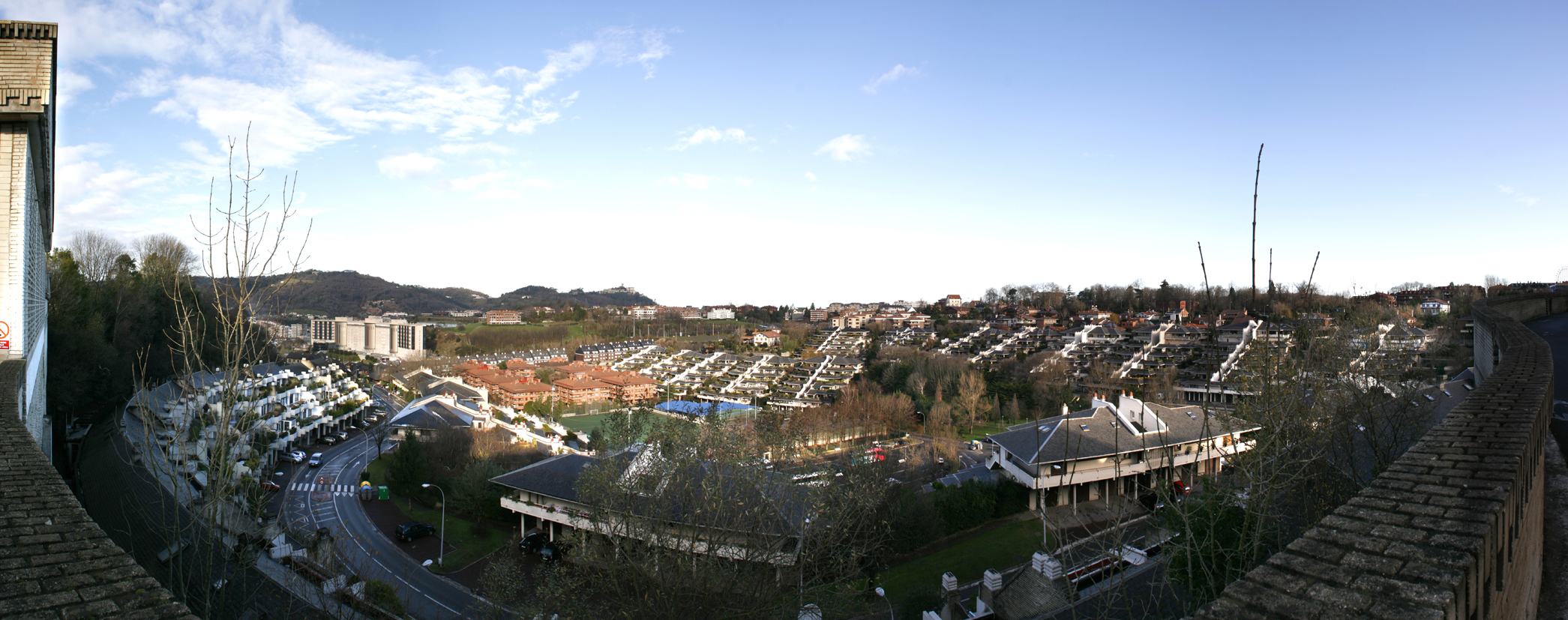The case study examines UR BEROA, a cooperative providing energy to the Bera Bera neighbourhood in San Sebastian, Spain. The cooperative was founded in 1985 to provide hot water and community heating to the residents and improve the energy efficiency of the neighbourhood. Since its establishment, the cooperative has successfully introduced cleaner energy sources and ways to measure the energy consumption of each household. Now, the cooperative is slowly making its way toward decarbonisation.
Bera Bera’s residents will further use and share the energy they produce
UR BEROA is currently made up of 510 members and it supplies its services through district heating based on a cogeneration system. The facilities consist of three natural gas boilers, a cogeneration engine, a biomass boiler, and solar panels that generate hot water. The cooperative aims to significantly grow its member base, increase the energy services it provides, and implement collective RES-based self-consumption. These operations will require introducing strong collaboration with both existing and new actors (the city council, service providers, retailers, and citizen associations).
We studied how residents adopt new sustainable energy practices
Since Bera Bera is a fairly educated and wealthy neighbourhood, we were interested to find out how social and economical factors influence energy citizenship. In the case study, we analysed what are the motivations and drivers of the cooperatives’ members for participation. We did this through in-depth interviews, workshops, focus groups, and different engagement activities designed ad-hoc for the case study. We also addressed the influence of the regulatory framework on fostering or hindering energy citizenship, and the relevance of educating and empowering citizens on sustainable energy behaviours.
The goal of the cooperative is to drive the shift towards a higher level of decarbonisation. The current residents are already very energy-aware, but we wished to see residents actively involved in sustainable energy actions. In addition, the cooperative will be facing various challenges in the next 15-20 years. Some of these involve the introduction of new activities linked directly or indirectly with energy, such as new electric mobility services in the neighbourhood and self-consumption projects. Another challenge is presented by the cooperative needing to address generational renewal. UR BEROA, created 40 years ago, is largely led by its founding members. New generations and residents have the challenge of sustaining the cooperative and increasing the energy awareness and engagement of its members. We also seeked collaboration and support from other actors, particularly local and regional authorities and energy agencies, who play a key role in building the path towards decarbonising UR BEROA. The case study was led by Tecnalia.
Our findings and conclusions
The analysis of the results of the case study highlights that individuals can play a proactive role in engaging with the energy transition when certain context conditions are met. The case shows how individuals can be drivers of the energy transition when they take collective action and join with peers to set up their own energy cooperative. It shows that this initiative, although somehow supported by different policies, can arise and be driven by citizens. However, for this initiative to happen, some baseline conditions are needed:
- a set of values that motivates individuals to take collective action towards more sustainable behaviours,
- a certain level of education and knowledge regarding the energy system and the role of citizens in it, and
- the financial and other type of resources that allow citizens to invest and set up collective energy
initiatives.
In addition, the case study emphasises the relevance of the different actors and the relationships among them to facilitate energy citizenship. In this regard, more collaborative relations seem to enhance a more active participation of the actors in the green transition. Finally, an adequate policy framework and instruments are essential to support different actors, especially citizens, on their path towards a more active energy citizenship.
With these insights from the case study, several policy measures and tools could be utilised to increase energy citizenship:
- First, a clearer leadership role of policymakers is needed, with not only financial support to energy communities, but with other support instruments, and with a more explicit prioritisation of collective energy initiatives.
- Second, it is important to increase the awareness and knowledge of society on the relevance of renewable energies in the energy transition, emphasising the role of energy communities as a means of gaining local ownership and social acceptance of large RES projects and installations. Moreover, the role of energy communities in decreasing energy poverty and contributing to a fairer energy transition should be highlighted.
- Finally, collaboration among the actors involved should be improved to foster more balanced power-relations among them. It is of foremost importance to increase collaboration and trust among citizens and policymakers to reach the objective of enhancing energy citizenship.

